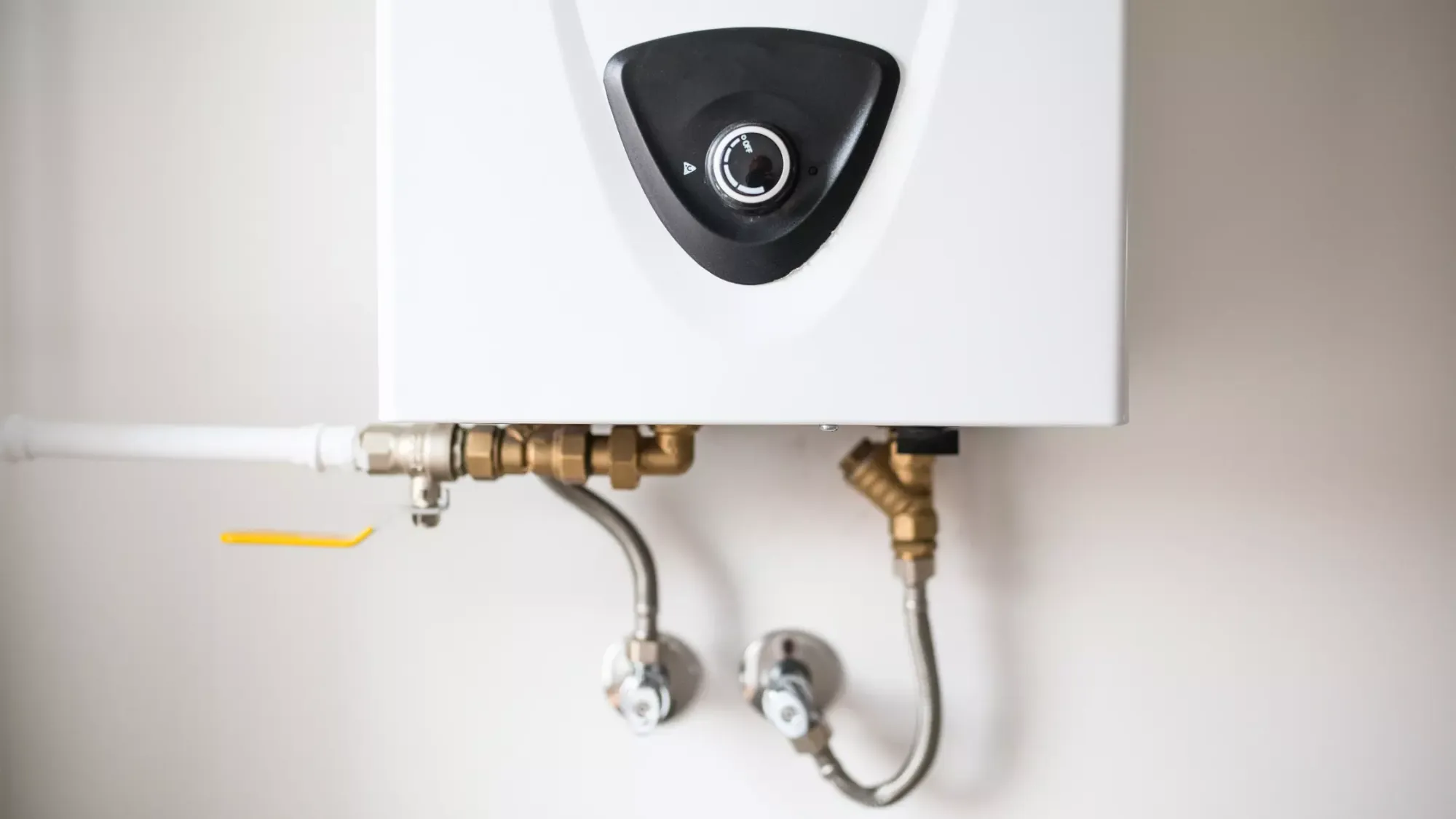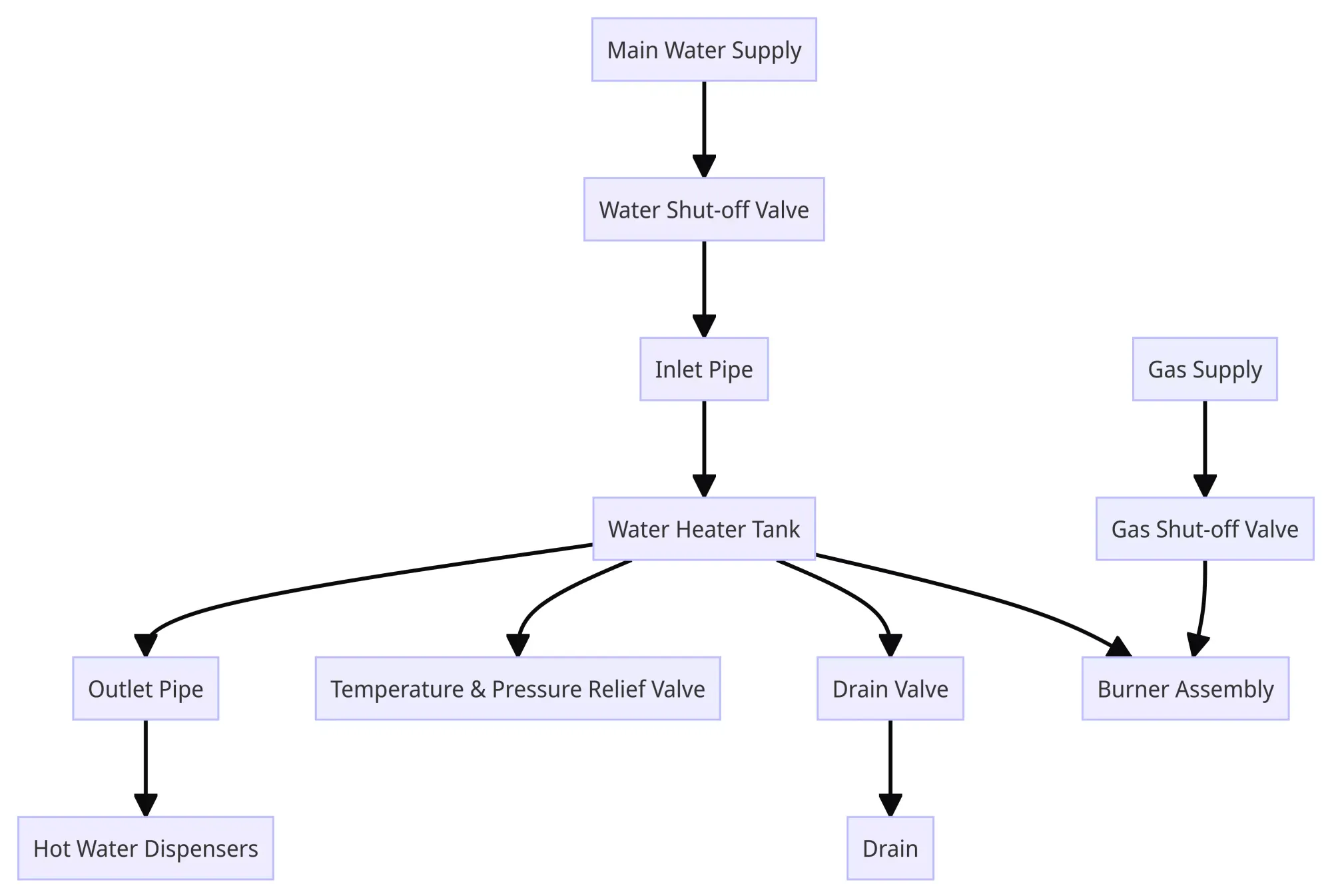Guide to RV and Camper Water Heaters

We're diving deep into the world of RV water heaters—a topic that might seem mundane at first, but is absolutely crucial for those of us who cherish a warm shower while out on the open road. Whether you're a weekend warrior or a full-time RVer, understanding the intricacies of your water heater can make a world of difference.
What is an RV Water Heater?
An RV water heater is designed specifically for the unique requirements of RVs and campers. Unlike the water heater in your home, these are compact, designed to resist the rigors of the road, and optimized for efficiency given the limited resources when you're off the grid.
Types of RV Water Heaters
There are primarily two types of water heaters you'll find in an RV or camper:
Tankless (On-Demand) Water Heaters
Tankless water heaters, as the name suggests, don't store water in a tank but heat it directly as it flows through the unit. These heaters utilize high-powered burners, which can be fueled by propane, electricity, or diesel, to rapidly heat water on demand. One of their main benefits is the continuous supply of hot water, making them ideal for families or those who don't want to worry about running out of hot water mid-shower. Furthermore, without the need for a storage tank, they tend to be more compact, freeing up valuable space within the RV. However, they often require a consistent water flow to operate optimally, and their initial cost can be higher than traditional tank heaters.
Tankless systems also have a longer lifespan compared to tanked versions, with many lasting over 20 years with proper maintenance. This can offset the initial investment over time. Additionally, they are more energy-efficient since they only heat water when needed, eliminating the energy loss associated with storing hot water. However, it's crucial to ensure that the RV's electrical system can handle the load, especially if opting for an electric tankless heater.
Storage Tank Water Heaters
Storage tank water heaters are the traditional type many are familiar with. These heaters store and heat a specific amount of water in a tank, typically ranging from 6 to 10 gallons in capacity for most RV models. Once the stored water is used up, there's a waiting period as the unit reheats the next batch of water. This can sometimes be inconvenient, especially if multiple people need showers in succession. On the positive side, these water heaters are generally less expensive upfront and can be simpler to install and maintain.
One of the main drawbacks of storage tank water heaters is the potential for standby heat loss. Since the water is being constantly kept warm, energy can be wasted, especially if hot water isn't used for extended periods. Regular maintenance, such as flushing out sediment, is crucial to extend the life of the tank and maintain its efficiency. The tanks, primarily made of steel, can be prone to corrosion over time. Many come with an anode rod, which attracts corrosive elements, protecting the tank. This rod should be inspected and replaced periodically to prevent tank damage.
Fuel Type
RV water heaters can run on various fuels:
- Electricity: These are often considered the most convenient, especially if you're at a campsite with electrical hookups. However, they can deplete your batteries quickly if you're not connected to a power source.
- Propane: A popular choice among RVers, propane heaters can heat water quickly and are efficient. Ensure you have enough propane, especially if you're off the grid for extended periods.
- Hybrid: These heaters can run on both electricity and propane, giving you flexibility based on your current situation.
Capacity
If you're traveling solo or as a couple, a smaller water heater might suffice. However, for larger families or if you anticipate hosting guests in your camper, consider investing in a heater with a larger tank or an on-demand system.
Certainly! When we talk about the capacity of an RV water heater, we're referring to how much hot water it can provide or store. Choosing the right capacity is essential to ensure you're not left in the cold halfway through a shower. Here's how you can estimate the right water heater capacity for your needs:
Estimating Capacity Based on Usage:
Shower: On average, a standard showerhead uses about 2 gallons of water per minute. If each person takes a 10-minute shower, they'd use approximately 20 gallons. Adjust this number based on water-saving showerheads or personal shower habits.
Dishwashing: Handwashing dishes can use anywhere from 2 to 4 gallons of water. If you use hot water for the entire process, you'll need this amount of hot water per dishwashing session.
Hand Washing: Every time someone washes their hands or face, they might use between 0.5 to 1 gallon of hot water.
Cooking: If you're boiling water or need hot water for other cooking purposes, estimate around 1-3 gallons, depending on the meal.
Calculating Total Daily Need:
Let's say you're traveling with your family of four. Here's an example calculation:
- Showers: 4 X 20 gallons = 80 gallons
- Dishwashing: 3 gallons (assuming one main dishwashing session)
- Hand Washing: 4 X 5 gallons = 20 gallons (assuming each person washes their hands 5 times a day)
- Cooking: 2 gallons
Total Daily Hot Water Need: (80 + 3 + 20 + 2) gallons = 105 gallons
Your actual daily needs will vary based on your habits, the efficiency of your fixtures, and how often you use hot water. It's always better to overestimate rather than underestimate to ensure you don't run out of hot water when you need it most. Remember, these are rough estimates, and real-world usage can differ. Always factor in a buffer to ensure you're covered for those colder days when longer, hotter showers are tempting!
3. Installation and Maintenance
Some RV water heaters are easier to install than others. If you're a DIY kind of person, check the installation guidelines before purchasing. Additionally, all water heaters require periodic maintenance. Draining and flushing the system, checking for rust or corrosion, and ensuring the burner assembly is clean are essential tasks.

4. Safety Features
Safety should never be compromised.
RV water heaters, especially those using propane, require diligent attention to safety. Proper ventilation is essential to prevent the dangerous buildup of carbon monoxide (CO), and every RV should be equipped with a CO detector that is tested regularly. Pressure relief valves are vital to counteract excessive pressure in the tank, while thermostatic mixing valves reduce scalding risks by maintaining consistent water temperatures. Electrical safety measures include ensuring the heater is properly grounded and connected to a circuit breaker, while propane systems need regular checks for leaks, with the flame guard intact to deter potential ignitions.
Regular maintenance, including inspections for wear or damage and periodic draining to remove sediment, prolongs heater life and ensures safe operation. Setting water temperatures below 120°F (50°C) minimizes burn risks. In colder climates, it's essential to drain the water heater to prevent freezing damage. If children are present, implementing locks or restrictions on hot water access and educating them on the dangers can further enhance safety. Always abide by the manufacturer's guidelines and, when in doubt, seek professional guidance.
5. Efficiency and Insulation
An efficient water heater can save you money and resources in the long run. Check the heater's energy factor (EF) rating. Additionally, good insulation will ensure that the water remains hot for longer periods, reducing the need to reheat frequently.
Tips for Extending the Life of Your RV Water Heater
Regular Flushing: Sediments can accumulate at the bottom of your tank. Regularly draining and flushing your water heater can prevent this buildup, ensuring efficient operation and extending the unit's lifespan.
Anode Rod Inspection: If your water heater has an anode rod, inspect it annually. This rod attracts corrosive elements, protecting the tank. Replace it when it's worn out.
Pressure Regulator: Using a pressure regulator can prevent damage to your water heater and plumbing system from high water pressure.
Winterization: If you're not using your camper or RV during the winter, make sure to drain the water heater to prevent freezing damage.
Conclusion
A water heater might not be the most glamorous part of your RV or camper, but it's undoubtedly among the most essential, especially if you're in it for the long haul. By understanding your needs, considering the practical aspects, and conducting regular maintenance, you can ensure that every shower and dishwashing session is a warm and pleasant experience, no matter where the road takes you.
Happy camping, and may your adventures be warm and toasty!